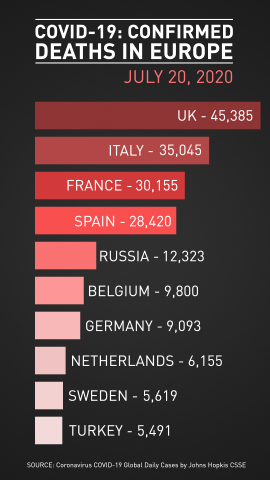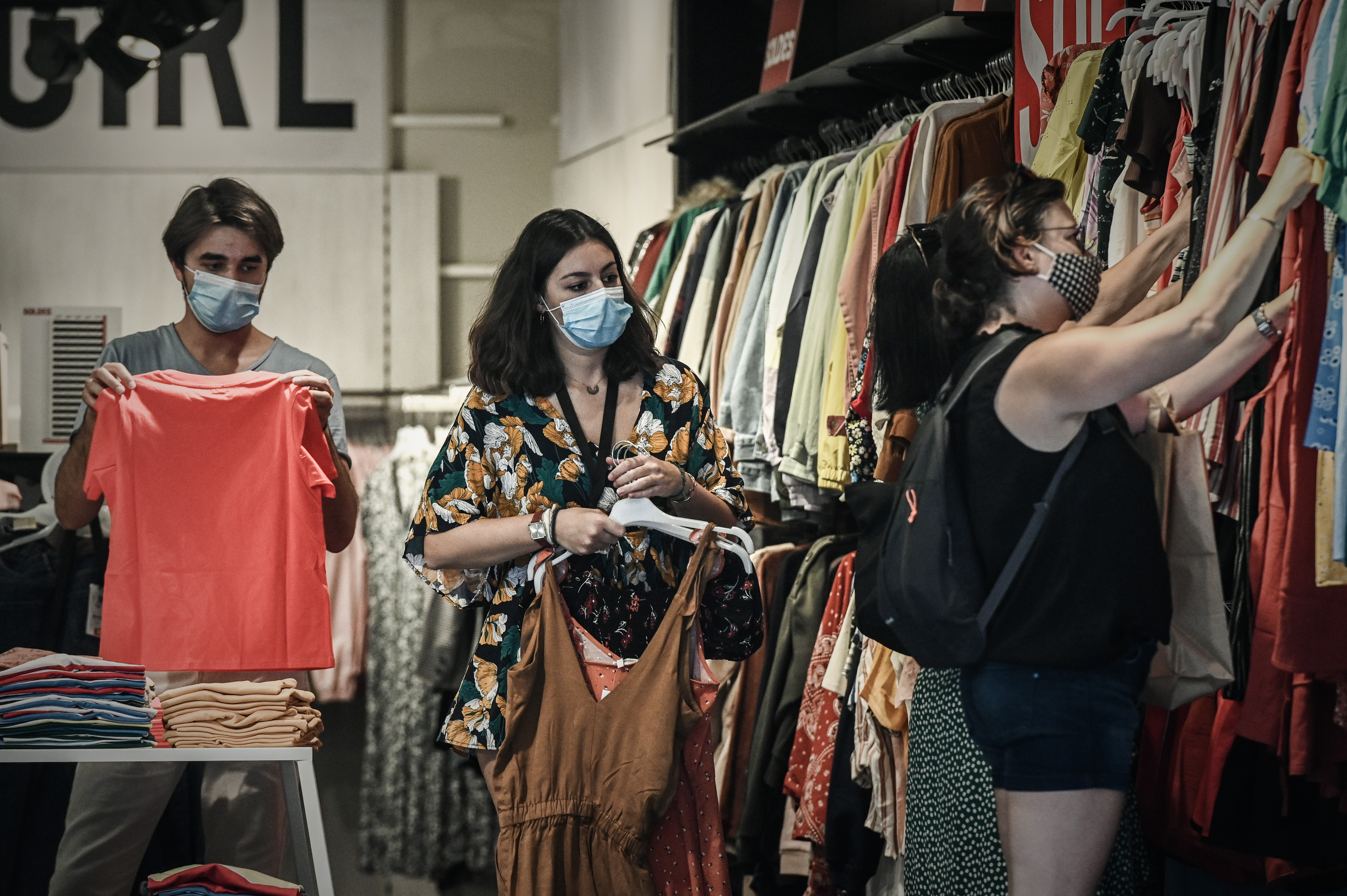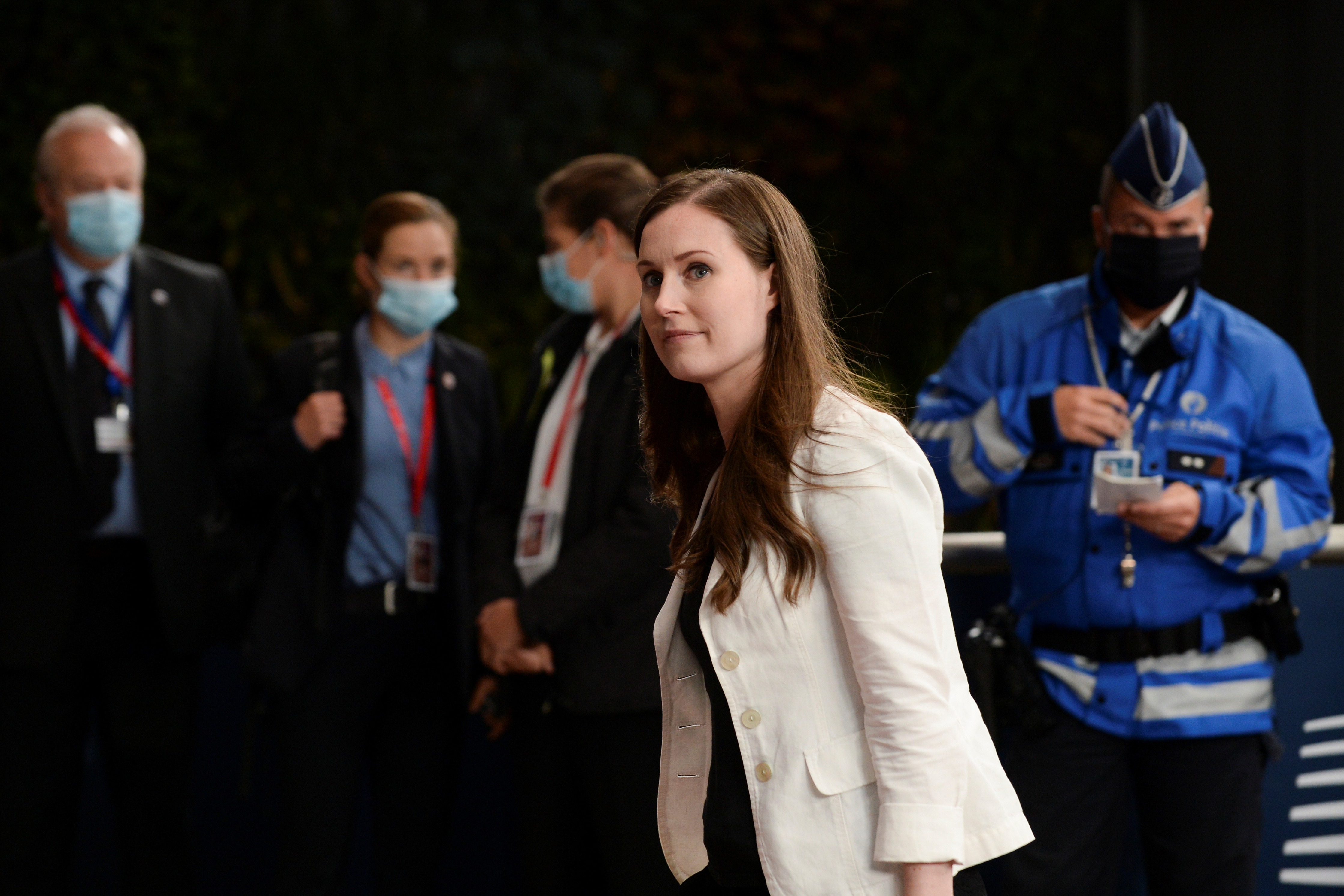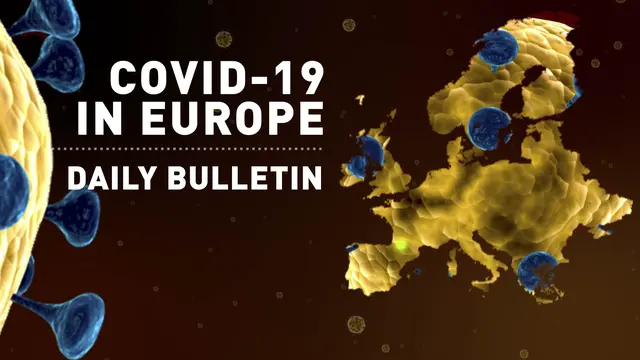TOP HEADLINES
• EU recovery fund talks enter their fourth day , as the "Frugal Four" – Sweden, Denmark, Austria and the Netherlands – along with Finland, refuse to allow $500 billion to be offered in the form of grants to countries that have been hardest hit by COVID-19.
• **The UK has signed deals for 90 million doses of coronavirus vaccines **that are being developed by an alliance between the pharmaceutical companies BioNtech, Pfizer and Valneva.
• France is introducing fines for failure to wear masks in enclosed public spaces . People will risk a $154 penalty.
• Scientists from King's College London say they have found that there are six distinct types of coronavirus , all defined by different clusters of symptoms.
• Italy's Lazio region, which includes Rome, is warning citizens that local lockdowns might have to be enforced if there are more clusters of coronavirus infections.
• **Early research suggests a new treatment from Southampton-based biotech firm, Synairgen, could significantly reduce deaths. The process uses a protein called interferon beta, which the body produces when it gets a viral infection. The protein is ** inhaled directly into the lungs of COVID-19 patients , using a nebulizer, with the aim of stimulating an immune response. It is estimated that the it can cut the odds of patients developing severe disease by 79 percent .
• Russia has reported 5,940 new cases , pushing its total infection tally to 777,486 , which is the fourth largest in the world.
• There are hopes half a million people will sign up to UK vaccine trials by October , with at least eight large-scale coronavirus vaccine trials expected in the UK.
• Cyprus's health minister says there is concern that coronavirus-infected migrants might be seeping through the ethnically divided island nation's porous ceasefire line , according to AP. Minister Constantinos Ioannou pointed to "a problem" following migrants who have tested positive for the coronavirus crossing the north to seek asylum in the south.
• Four million people have been told to stay at home in the Spanish region of Catalonia following a recent spike in cases.
• French authorities have reported 400 to 500 active coronavirus outbreak clusters, but there is no sign of an imminent "second wave," says health minister Olivier Veran.
• The number of coronavirus deaths around the world has surpassed 605,000 , and the U.S. is the worst-affected country. There are more than 14.4 million confirmed cases , according to data from Johns Hopkins University.
00:10

ACROSS EUROPE
Ross Cullen in Paris
France brings in stricter measures on Monday on the wearing of face masks.
They are now compulsory in all indoor public spaces, such as shops and shopping centers, banks, and covered markets. Office blocks will be assessed on a case-by-case basis, dependent on the employer.
The move is part of a drive from the government to combat a rising reproduction rate, an increase in cases and new clusters being detected. Wearing a face mask will continue to be optional outside, such as in the street, in parks, at the beach or on hiking trails.
Putting on a nose-and-mouth covering is already obligatory on public transport across France and in restaurants and cafes when you are moving around inside the establishment.

People wearing face masks at a store in Bordeaux. /Philippe Lopez/AFP
Toni Waterman in Brussels
Belgium
Concerns are growing that Belgium could be on the cusp of a second wave of coronavirus infections.
Fresh data out on Monday showed an average 154 new cases per day over the past week, a 66 percent increase from the week before. One of the country's top virologists, Marc Van Ranst, believes this is the beginning of a second wave.
The government has decided to put the brake on further lockdown easing, but it's quite ready to reimpose restrictions.
In anticipation of a long battle ahead, the government has extended a temporary unemployment scheme until the end of the year.
Brussels
Marathon talks resume at today as EU leaders try to strike a deal on a COVID-19 recovery fund and the bloc's next long-term budget.
After negotiating through the weekend, the so-called frugal four – Austria, the Netherlands, Denmark and Sweden – signaled a willingness to accept $450 billion of the fund being distributed as grants, while the remainder would come as low-interest loans.
But the concession won't come for free. In exchange, the frugals want additional rebates in the EU long-term budget, which is being negotiated alongside the recovery fund.
In an early morning tweet, Austrian Chancellor Sebastian Kurz said: "Tough negotiations have just ended, we can be very happy with today's results."
Besides the grant-to-loan ratio, other differences remain – including the fund's overall size, the governance of the money and controls over spending.

Finland's Prime Minister Sanna Marin leaves a meeting at the EU, as recovery fund talks enter a fourth day. /Johanna Geron/Pool/AFP
FROM OUR GLOBAL COLLEAGUES
**CGTN Europe podcast: **
Notes on a pandemic: Science rules
CGTN China:
On a wing and a prayer – How to be an actor during the pandemic?
CGTN America:
Can summer camps survive the COVID-19 pandemic in America?
CGTN Africa:
Feature: Engaging the youth in COVID-19 interventions in Zambia
Sign up
here
to get the COVID-19 Europe bulletin sent directly to your inbox.
CGTN Europe has been providing in-depth coverage of the novel coronavirus story as it has unfolded.
Here
you can read the essential information about the crisis.
 简体中文
简体中文

